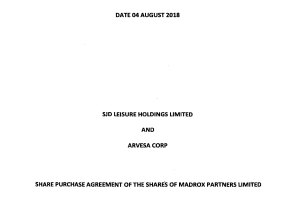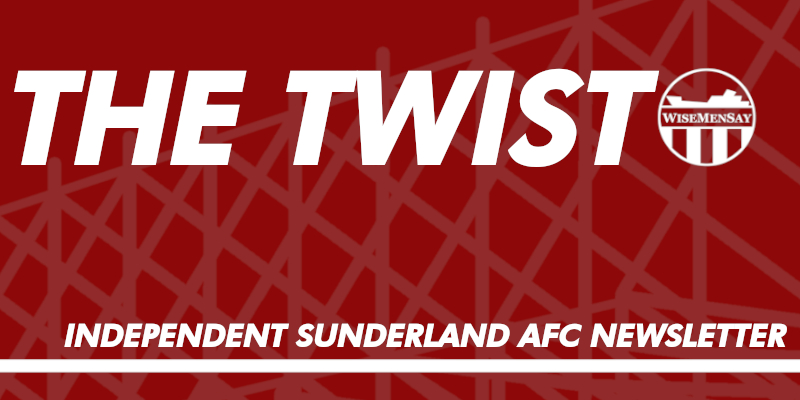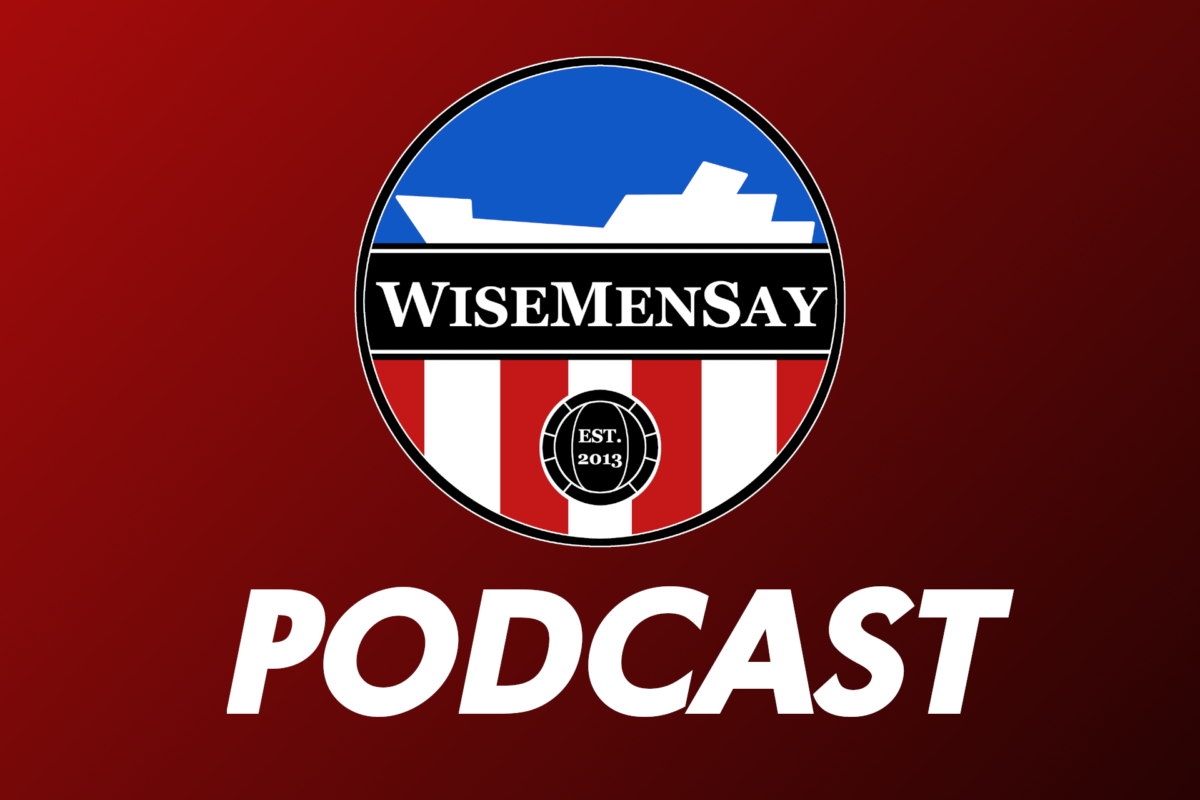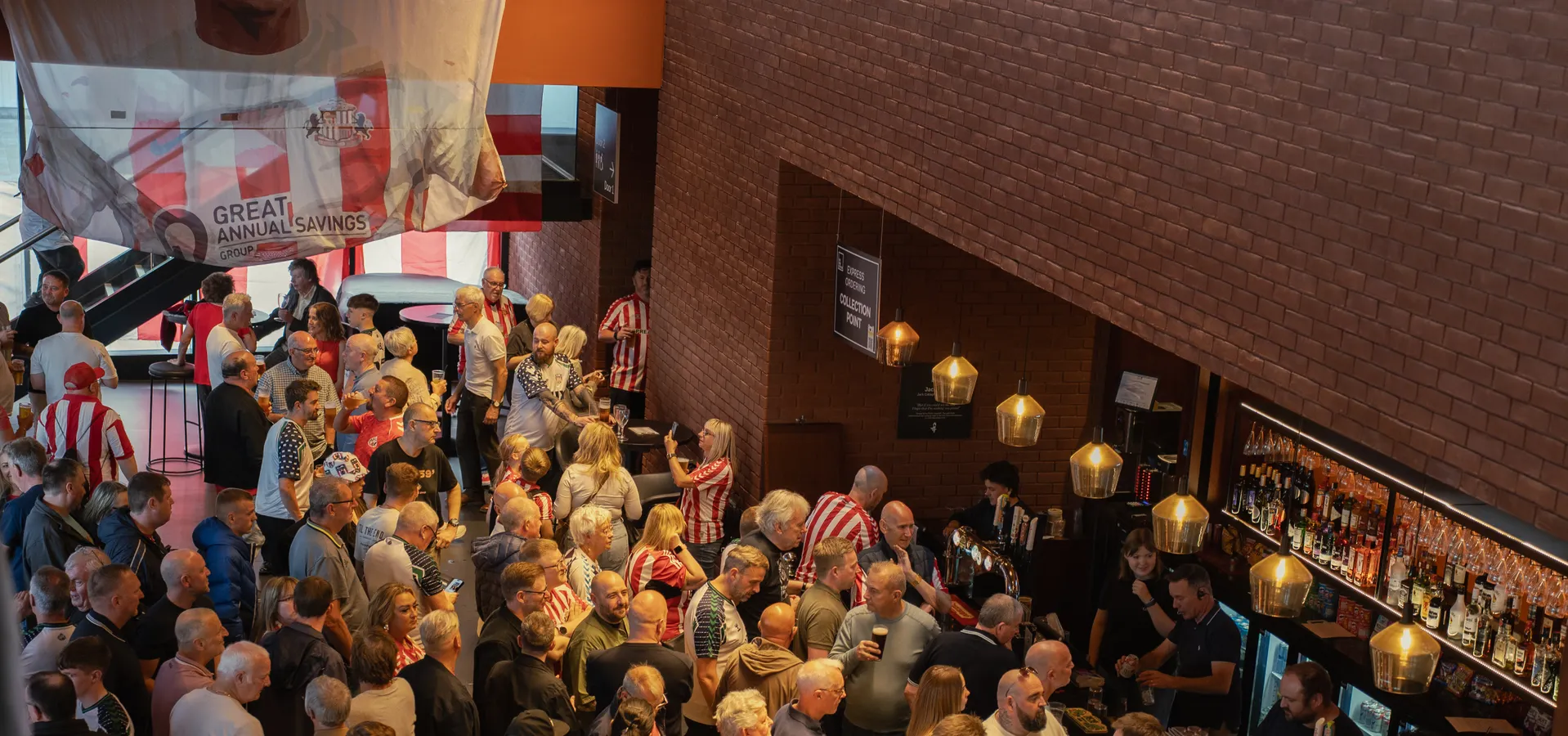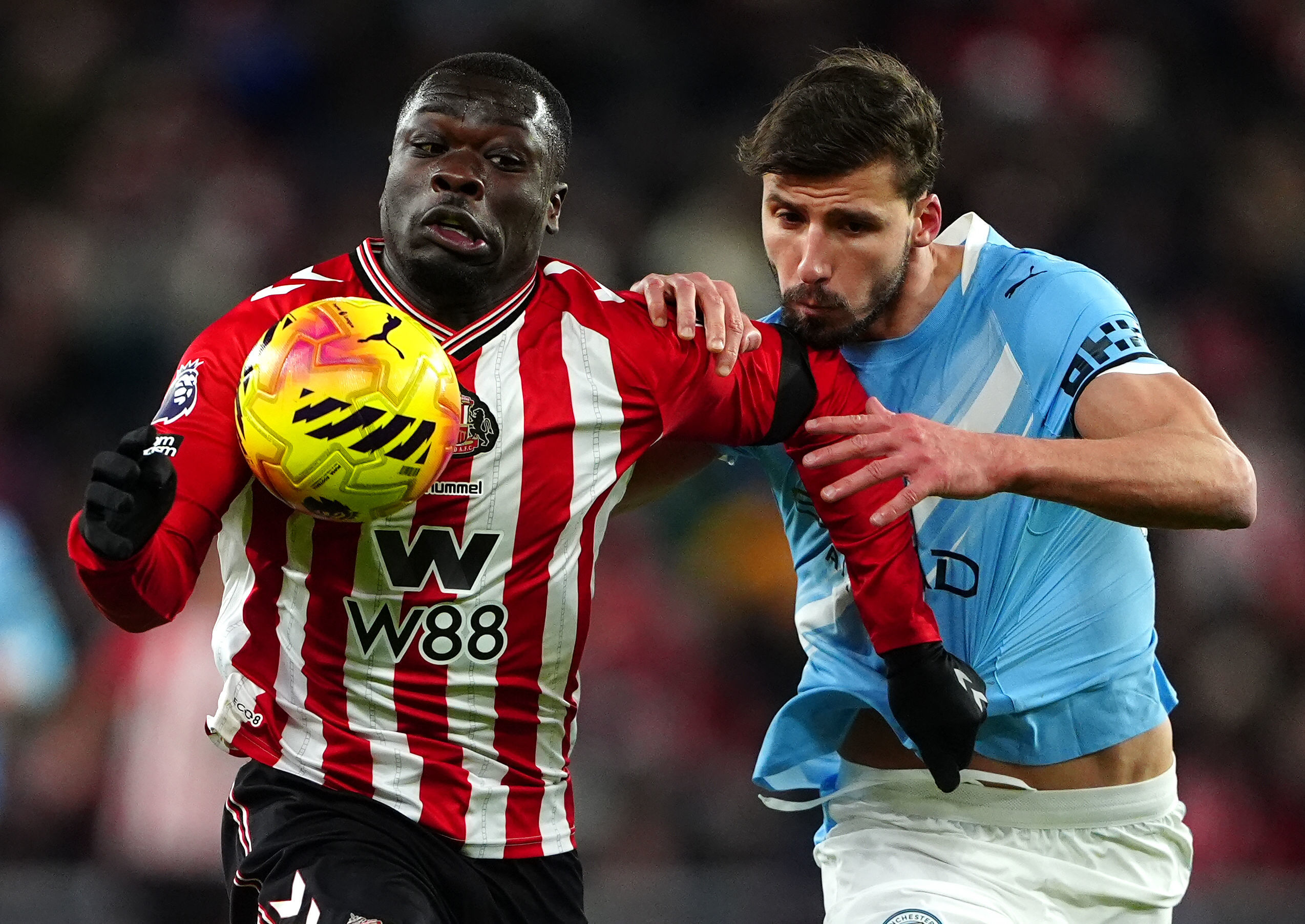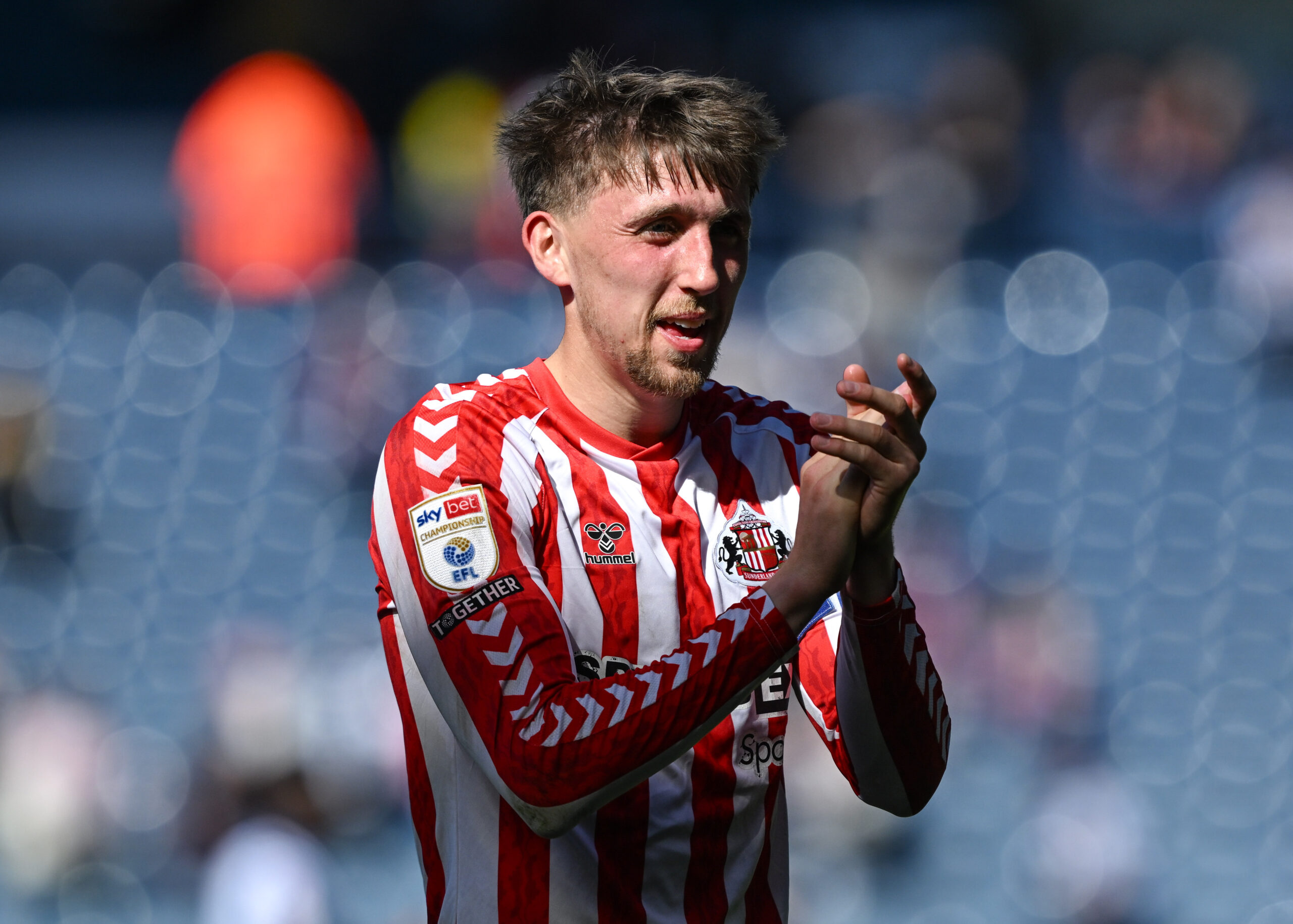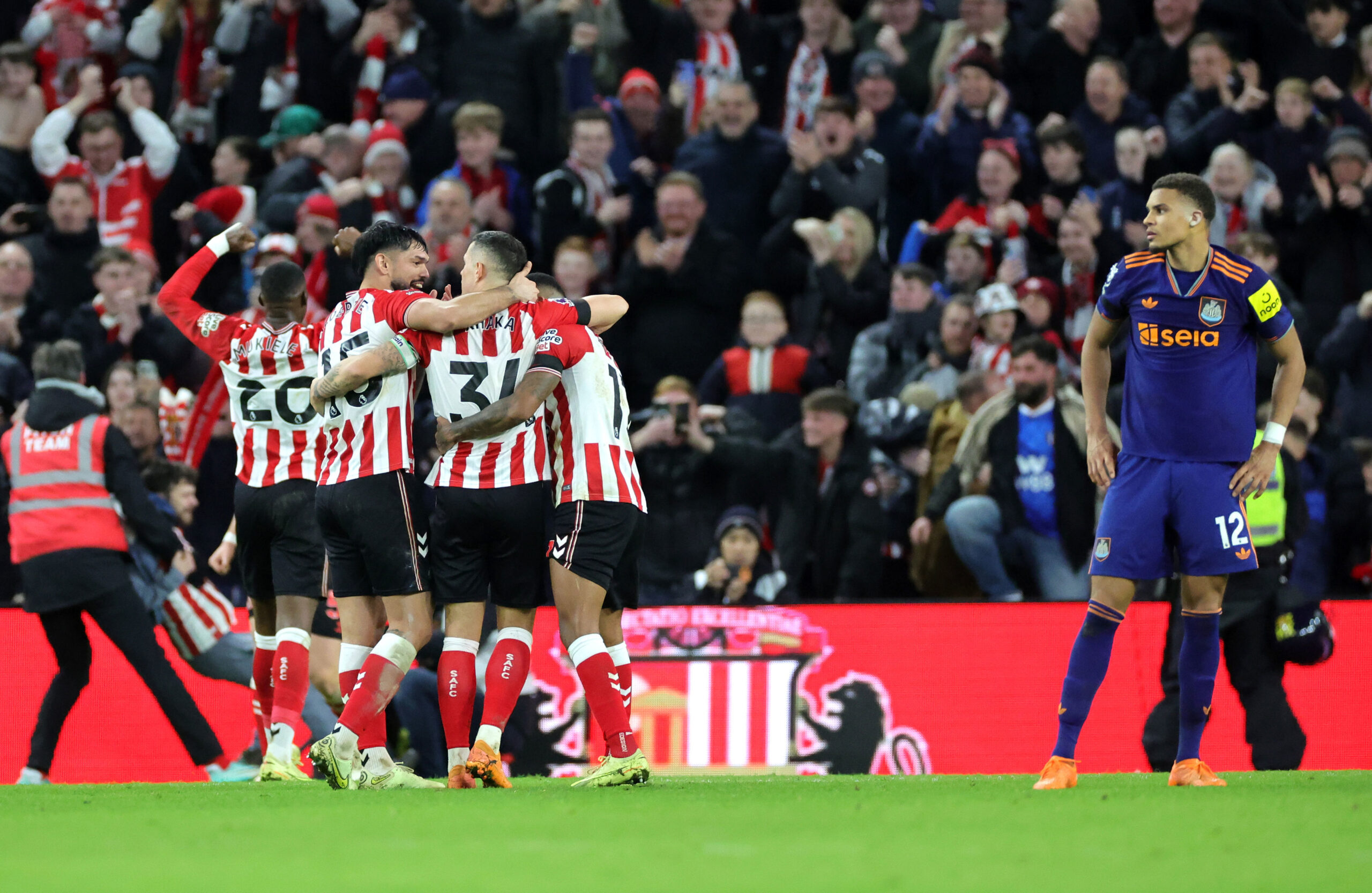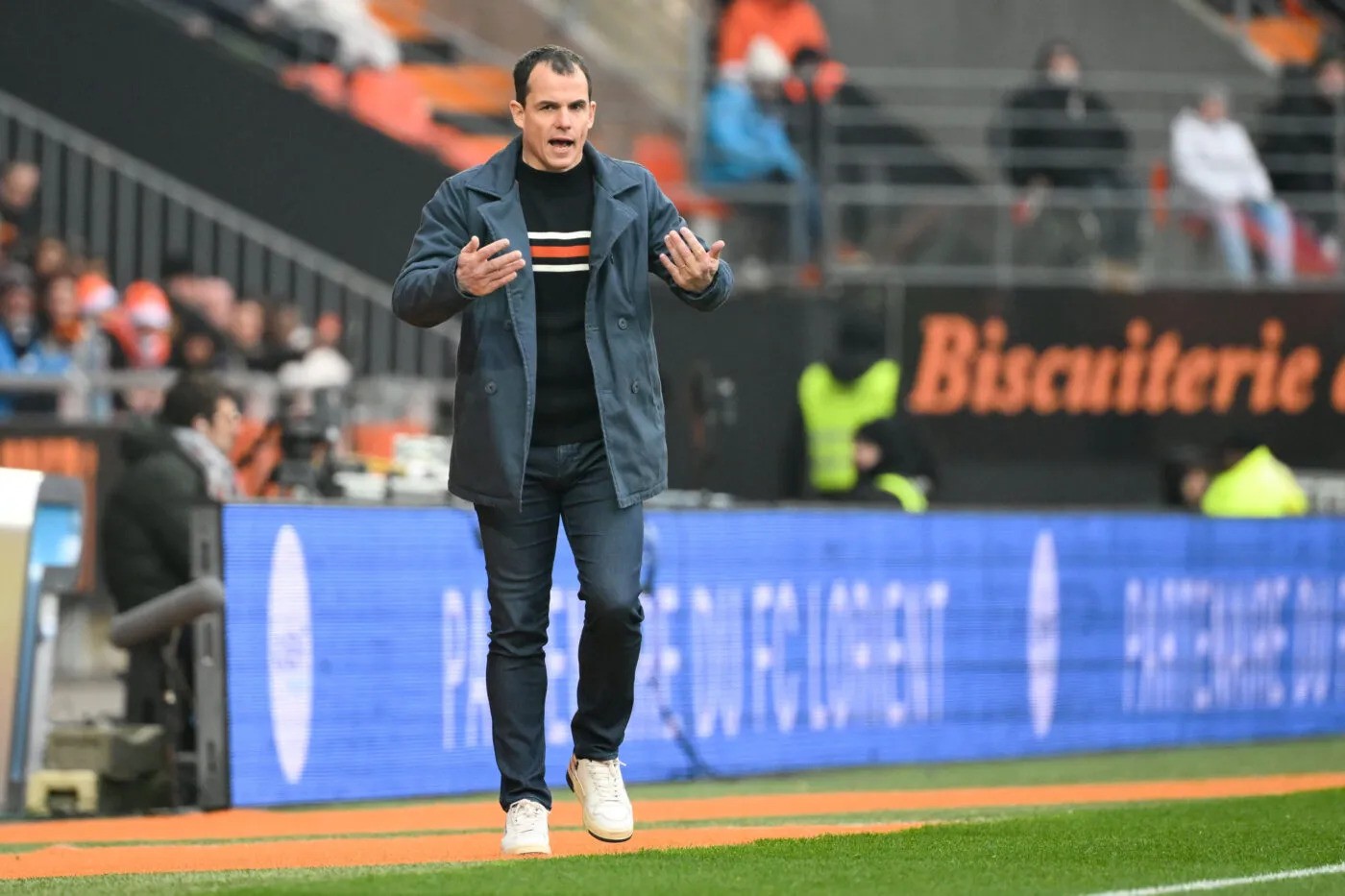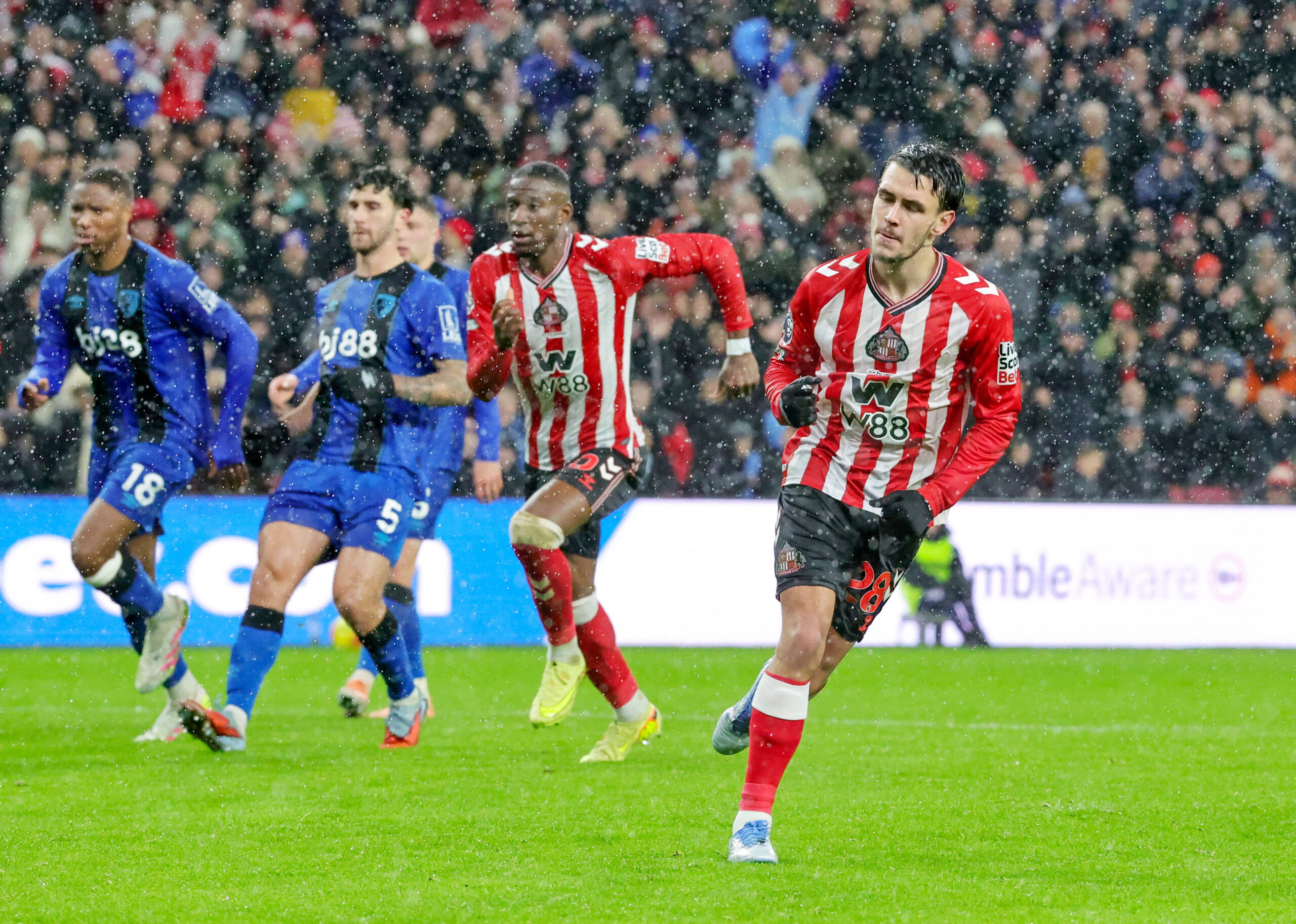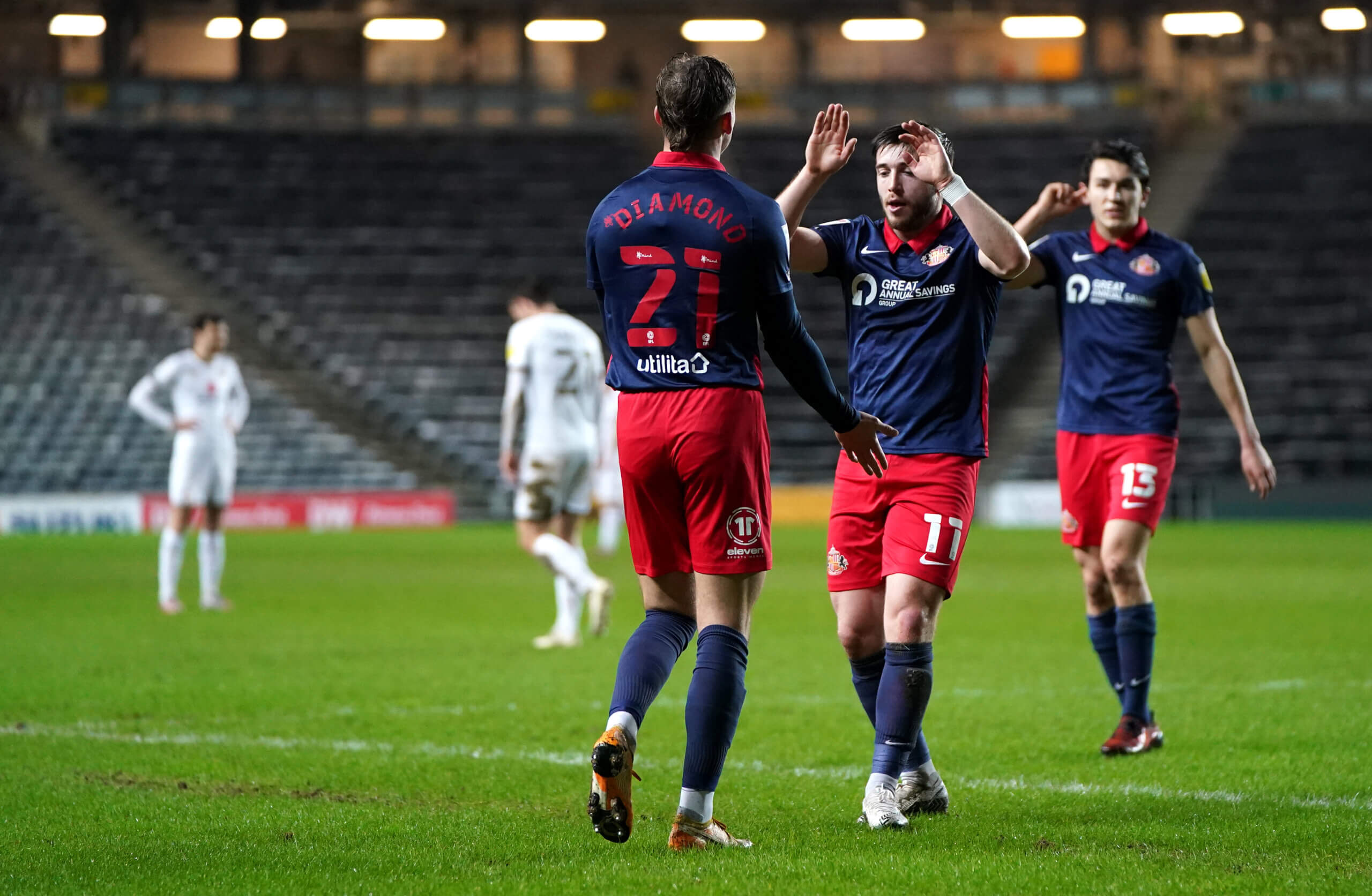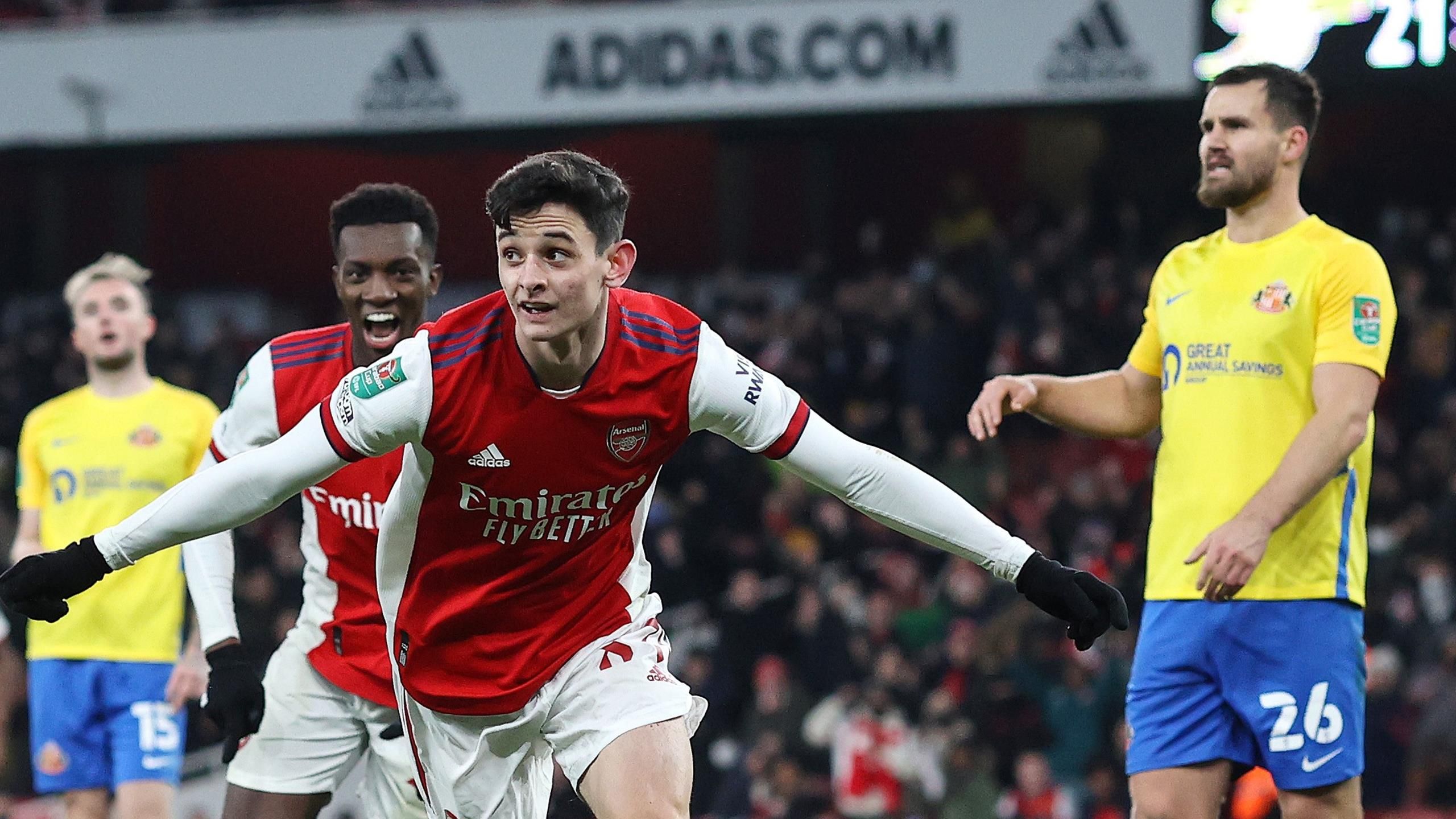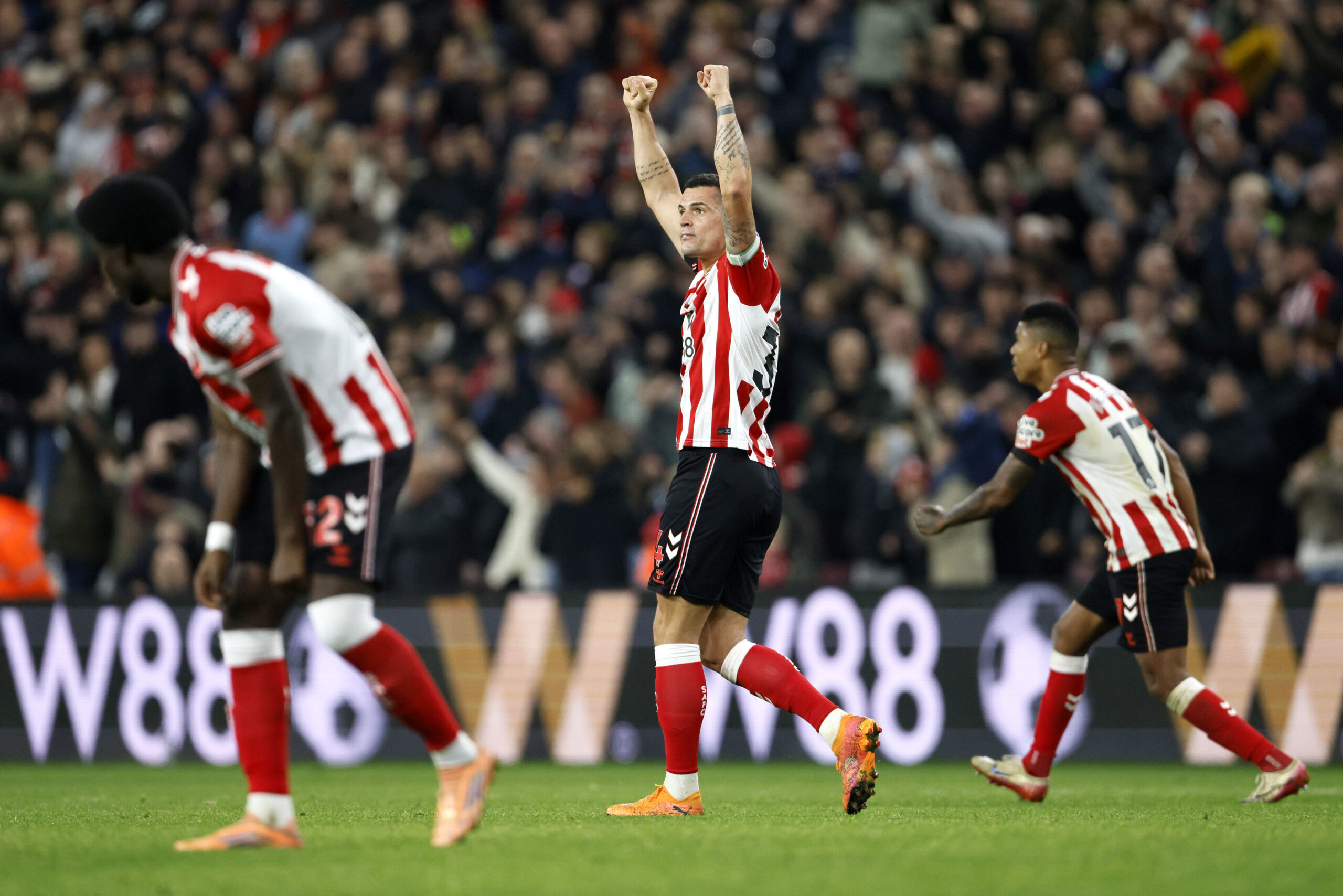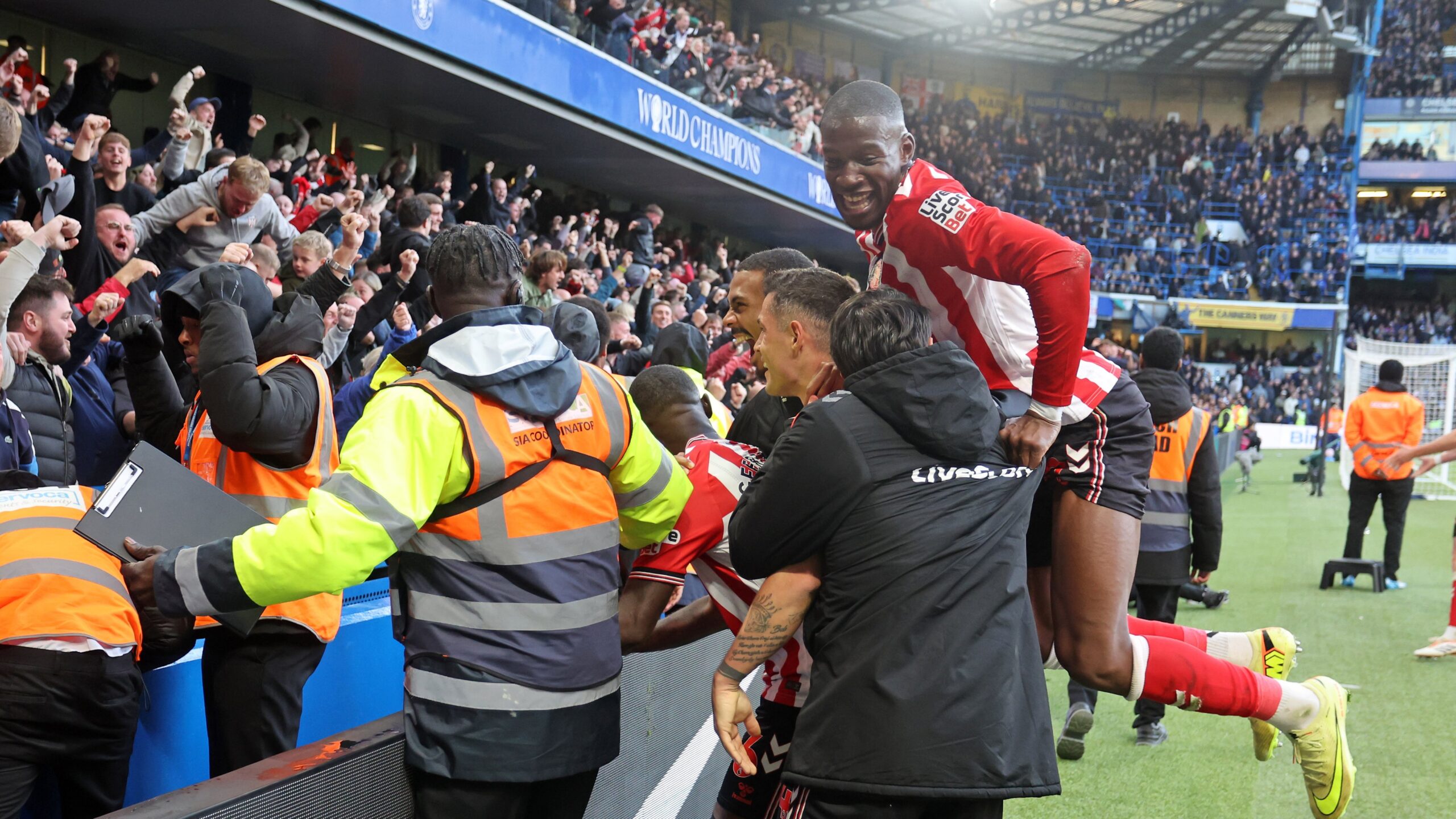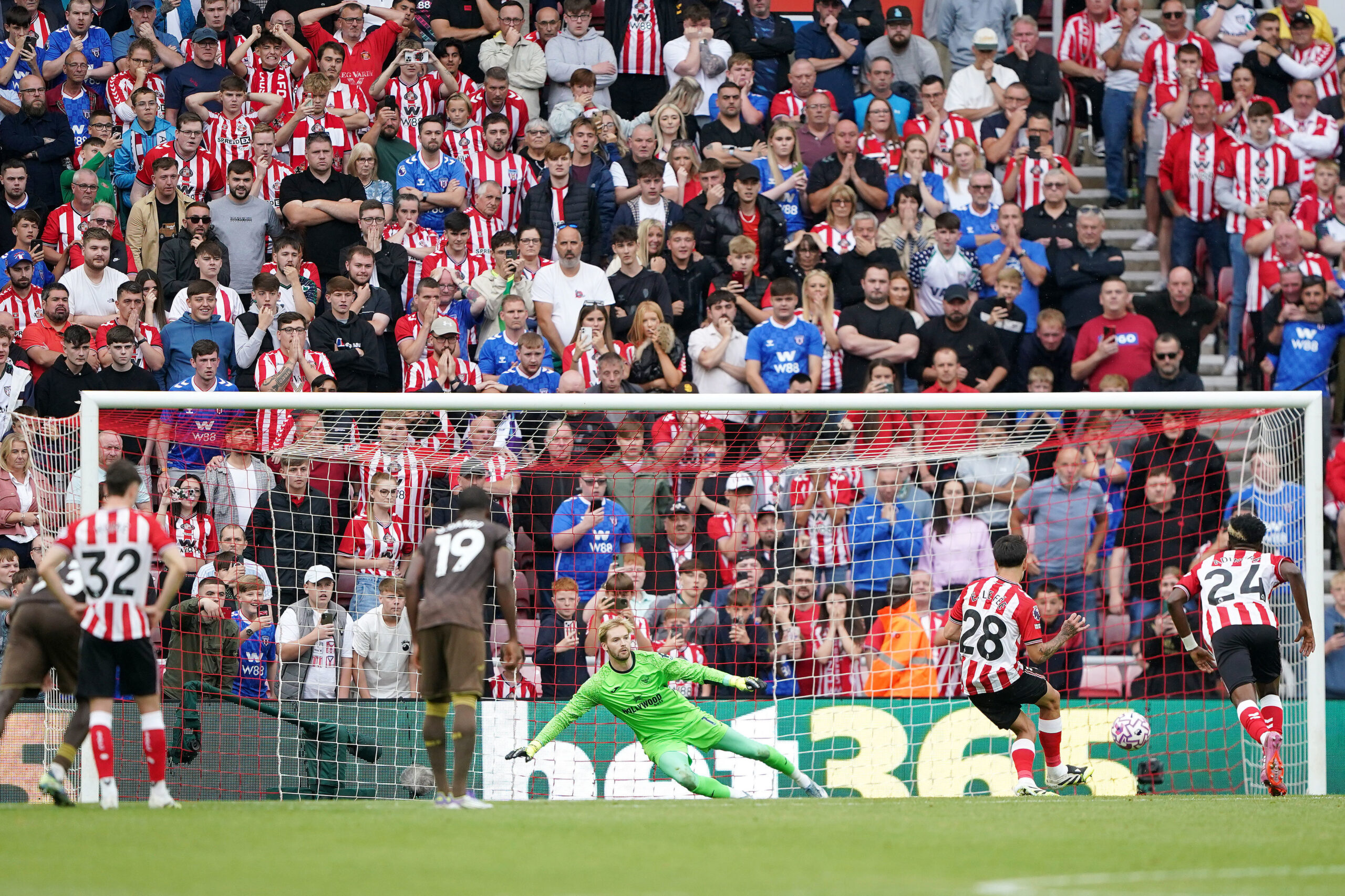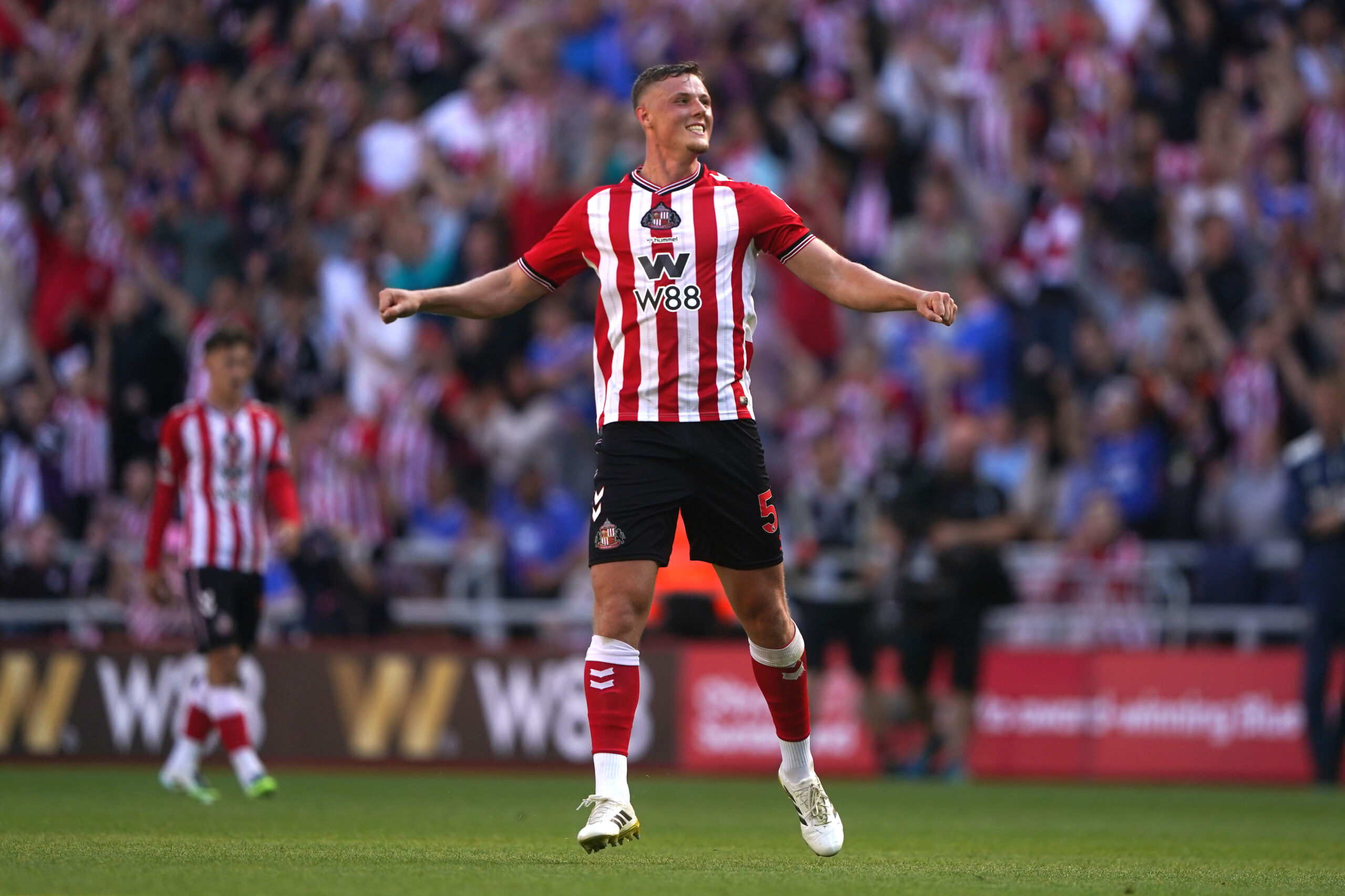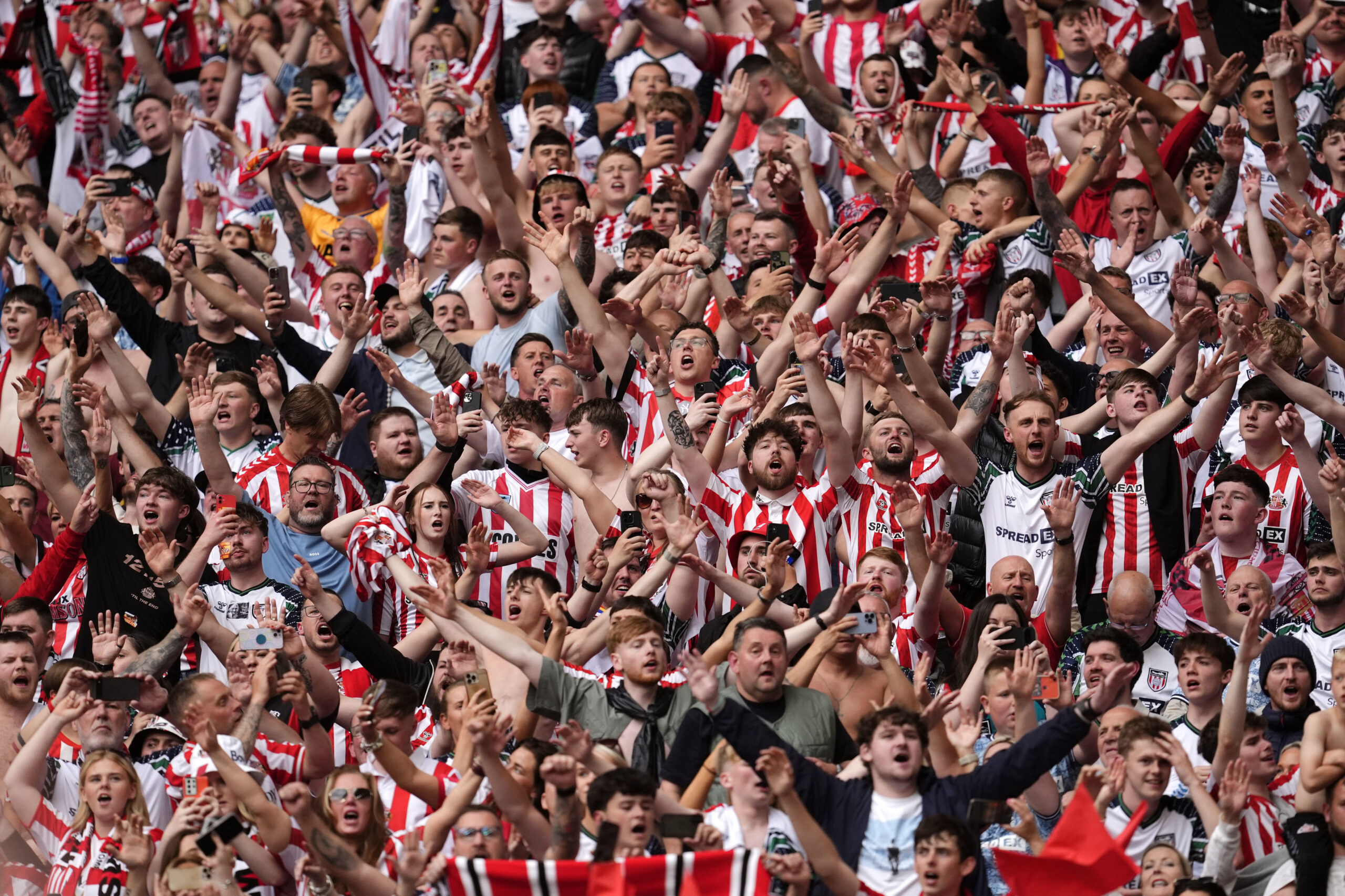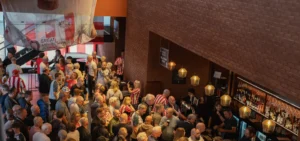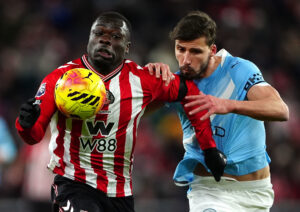Take yourself back, if you can, to May 2018. It is a sunny start to the week, a Monday with endless possibilities and, on the banks of the River Wear, two men take their seats.
To hear Stewart Donald and Charlie Methven talk was to hear of a new beginning at Sunderland AFC. After years of drift, negligence and waste, factors which had combined to leave this once great club in the third tier for only the second time in its history, here were new owners, bringing with them new words, new ideas, new plans.
We’ve given Ellis £40m and in return Ellis has tidied up his debt and that’s now gone.
It sounded too good to be true. Debt-free? Really? Yes, we were told, Ellis Short had cleared all debts owing to both him and Security Benefit Corporation, an external lender. Those £34.2m parachute payments? They’d stay in the club too. Sure, they were being used as ‘security’ to ensure the new owners paid up the £40m due to Short in full, but that wouldn’t be an issue.
After all, as Stewart Donald told the Roker Rapport Podcast later that day, ‘I had to show the league £50m to say that I could cover Sunderland. I’ve managed to find that in my piggy bank under the bed somewhere.’
Despite that wiping of the debt, Sunderland still retained significant liabilities, meaning it wasn’t feasible for the new owners to simply pay Short off in full straightaway. As Methven put it, again noting that the purchase price for the club was £40m, asking for someone to pay all that at once would be a tough undertaking.
If one had to pay him the full £40m up front and then had to cover everything you need to pay for in the short term that would be a difficult thing to do, that’s an awful lot of cash. He has accepted that he will need to be paid gradually…The £40m will be secured on the parachute payments, but Short won’t take them.
Football fans, apart from a sad select few (yes, I’m talking about myself), don’t tend to take much interest in the financial side of things. And nor should they. We watch football to see our team win, not count numbers on a spreadsheet. But that does mean when financial terms, such as ‘security’, are used, confusion can be rife. To some, there was a worry that this did sound a little bit too much like the parachute payments forming some part of the deal.
To help provide clarity, when the topic arose a month later on another Roker Rapport Podcast, Donald explained the nature of secured assets. Really, it was nothing more than putting silly old Ellis’ mind at rest. Donald could pay that £40m over the time agreed, of course he could, so the security wasn’t a problem. Once Donald paid off Short, those parachute payments would be freed up, a nice little stockpile for the club to dip into a couple of years down the line.
With that out of the way, we cracked on with our new dawn. Players came and went, agents likewise and, by late September, things were looking decent. A loss at Burton Albion had been our first setback in the league, but as Rochdale came to visit on 22 September 2018, we sat fourth in the table, a promising start given initial concerns that it might take a while for a whole new squad to bed in.
That day, Methven took to his programme notes to give a financial update, four months into his and Donald’s tenure. Yet there was a marked shift in what had been said previously. Where once fans were under the impression the club was entirely debt-free, now we were told that, actually, £25m of parachute payments had been ‘ring-fenced to pay down bank debt’, a detail that had been mysteriously absent during the press conference of a few months prior.
One month further on and the story had shifted ever so slightly again. Now the tale morphed into one such that those parachute payments had also been promised out on transfer liabilities that the club had to meet, as well as that aforementioned debt which we had previously been told no longer existed. The transfer overhang presumably related to the remaining £9m in payments the club was due in 2018/19; after all, the rest were secured in Short’s favour, so they couldn’t be promised to two places at once.
In truth, much of this passed by unnoticed. A lot of information had been thrown at people over the past few months and things were going pretty well on the pitch. Some continued to raise the question but by now it was considered as retreading old ground. The parachute payments had been explained sufficiently and, ultimately, though they may have been borrowed by the club’s new owners, they would eventually find their way back into club coffers.
Fast forward around seven months, and the Daily Mail broke a story that they said laid bare the reality of Donald and Methven’s purchase of the club. In response to it, Donald admitted that £25m of parachute money had gone to Short, as opposed to Donald himself paying Short and those parachute payments being released from the security they were placed under.
But that was fine, we were told, as Donald and Sartori were writing down that same amount. The figures listed as owing from Madrox to the club were diminishing over time as the owners injected funds as and when they were needed. There was nothing to worry about; those funds would be fully replaced over time.
That’s writing down. Not writing off.
A few weeks later, Charlie Methven sat down for a Red and White Army supporters group meeting. Unsurprisingly, the deal and the parachute payments reared their head. Methven, who’d clearly misspoken a year earlier, now sought to put the record straight.
Methven appeared to suggest that, regardless of whether a sale had taken place the previous summer or not, the club was on the hook for £25m to SBC, the external lender. Why exactly the figure was £25m when the total debt to SBC was closer to £70m was left unexplained. As was how this revelation tied in with the declaration on day one of their tenure that ‘Sunderland is now debt-free’.
With the £25m having been borrowed by Madrox to pay off Short (who was paid off in full in April 2019, over a year ahead of schedule, just before reports of Mark Campbell being close to buying the club came out), Methven was questioned as to the timescale around when those sums would be put back into the club. At first he appeared to suggest that they never would be, before then stating that, as time went on and cash needs arose, the money would be repaid. The only way that wouldn’t happen was if Madrox were to sell the club prior to the full amount being repaid.
RAWA: So, in short, the parachute payments from last summer were spent on SBC debt, incurring a debt from Madrox to SAFC, and that debt is being paid off over time.
Charlie Methven: In answer to your first question: yes. In answer to your second question: that is the current situation, yes, subject, in future, to what I have already said.
On that note, it was interesting that Methven stated the matter would be taken into account when it came to setting a purchase price for the club.
CM: In accounting terms, the club is now ‘owed’ around £20 million – so in the event that any new owner came in, there will an adjustment in purchase price. If Madrox stays in charge then the debt remains and gradually gets paid down. As per the above, not leaving £25m of debt to SBC in the SPA is a big ‘win’ for the club.
Fair enough again. If a new owner turns up, and the club is still owed a big chunk of money by Madrox, the current ownership will revise their price down accordingly. That way, should the current owners have wanted, oh, I don’t know, £35m for the club once all monies had been paid, but they’ve still got around £20m owing when a new owner rocks up, they’d revise their price down to £15m. Which is good of them.
Much water has passed under the bridge since but now, 11 months on from that admission, we sit watching a club that the majority owner has now publicly admitted he wishes to sell. The price he wishes to get for the club appears to be around £35m. He has not come out and said it and nor have any his fellow owners. But it has been widely reported.
What is more, an article that appeared on OffThePitch.com in February stated, citing ‘a source close to the club’ that the base level asking price was £35m if the club was not promoted to the Championship this term. I’m inclined to believe the piece is accurate for a couple of reasons, not least because one of the club’s owners is known to have both monitored the site around that period and also retains a relationship with the author of the piece.
If we can take that £35m to be accurate, and align it with the £37m purchase price for the club showing in Madrox’s 2018 accounts, that looks like a logical (if still contentious) valuation. After all, in July 2018, Donald told the Roker Rapport Podcast ‘I don’t envisage making money on Sunderland.’ So, presumably, with the asking price set at that level, all those amounts due to the club must have been repaid.
Or perhaps not. As we now know following last night’s revelations, the club has written off £20.5m of that debt. The owners remain adamant the money will be repaid but, much like in the past, we have been given no hint of a timescale. What is more, if the debt is to be repaid, we simply must ask: why remove the legal obligation to do so? Given a past history of stories changing and an increasing air of suspicion within the fan base, removing that obligation looks an awfully odd move if the intention remains to replace those funds.
The club’s explanation – that FPP demanded this as part of their investment in Madrox – appears questionable. The Madrox investment was not signed until October 2019. The accounts run to July 2019. It is not unknown for accounts to be changed when matters arise after the reporting date that change the nature of the figures, but that isn’t what happened here. There was no investment in place with FPP in July 2019, so, if FPP did demand this, it didn’t take effect until three months later.
The suggestion FPP demanded it is, in itself, baffling. Why, we must ask, would investors in Stewart Donald – after all, we have been told they were investing in him rather than our football club – insist on a £20.5m reduction in Sunderland AFC’s assets? Who does that benefit? This is likely to be one of the questions they will have yet another new answer for, so we’ll wait for that with interest.
Moreover, the club’s explanation that £11.5m has been injected by Madrox into Sunderland AFC since last July is likely true, bit that doesn’t mean it originated with Madrox’s owners. The figure presumably includes the £9m that FPP loaned to Madrox, in which case that sum hasn’t come out of the pocket of Donald, Methven or Sartori. Alternatively, if they are suggesting the £11.5m is independent of the FPP loan, how does that tally with the club being debt-free? Or breaking even? They are scuppered whichever way they turn.
The truth is that asking for £35m for Sunderland AFC in its current state – a third year in League One, dwindling income, high fixed costs and a continued exodus of young talent – would be ambitious at the best of times. When we combine it with the apparent fact that the club was acquired by its current owners for less than half that amount, it is scandalous. Every seller has his price but not every seller is fair about it. As things stand, our club is falling into disrepair (again), and is, according to reports, being hampered by an asking price that is far beyond the realm of reason.
Juan pound
The other big revelation from the stories that broke on Friday surrounded Juan Sartori’s purchase of 20% of Madrox shares for a mere £1. Some have tried to split hairs and suggest this bears no relation to the worth placed on the club at the time, but they’d do well to remember that Madrox’s sole asset at the time was the club; indeed, Madrox was set up solely to act as an investment vehicle to buy Sunderland AFC.
With that out of the way we should probably consider the response to the above revelation: ‘The club is not privy to the detail of arrangements between the shareholders and directors of its parent company. This is a matter for Madrox.’ That’s a quite incredible cop-out when we consider that multiple Madrox directors have also been directors of the club.
But, to make it clear, why don’t we have a look at the document itself?
Though plenty weren’t aware, it was (presumably mistakenly) uploaded to Companies House around 18 months ago. We at Wise Men Say have known of its existence for a while, as too have individuals within RAWA; it was only a matter of time before someone in the press did some digging and found it as well.
Quite why this deal was made is anyone’s guess. My own personal view, which may be way off, is that bringing Juan Sartori on board helped give the illusion of significant wealth, both to fans and prospective buyers. It’s much easier to demand a higher price if those across the table think one among your number could merrily bankroll the club for years and has no immediate need to sell.
Selling for a price that values Madrox and, by extension, the football club at a mere £5 so soon into the new owners’ reign would seem odd anyway, but the plot thickens when we look back on what we were told at the time. After all, the previously reported £3m figure didn’t appear out of thin air. It was a response given by a Madrox shareholder to a direct question.
Roker Rapport: How much does [Juan] own? How much has he put in?
RR: So that brings you down to 74%? That’s lower than you said you wanted to go.
SD: I know, but he’s good, so we’ll let him.
RR: If you don’t mind me asking, how much did he pay for that 20%?
RR: Is he investing in the club?
SD: Well, that will be ongoing. So, I’m not quite sure where that will take us.
That £3m revelation caused some confusion among the ranks. After all, an asset which had been bought for £40m just a couple of months ago was now being valued at £15m. The explanation, though, again made sense, and allayed fears. That £3m was a ‘deposit’, per Donald, commensurate with the £15m Donald had already put down for the club. Methven later quibbled with the ‘deposit’ wording, instead saying that what Sartori had put in was simply proportionate to what Donald had. In any case, the tale was that as Donald continued to pay all the way up to £40m, so too would Sartori, such that his stake would eventually cost him – by way of some fairly simple mathematics – £8m.
Perhaps someone misspoke. Perhaps editing software sometimes replaces one number with an entirely different one. Or perhaps, just possibly, the comment that £3m was paid for Madrox shares was unlikely to ever be uncovered as untruthful. After all, Sartori’s share purchase was made via a company registered in Uruguay, so we wouldn’t ever be able to verify the price through public documents. Share Purchase Agreements aren’t meant to be public – for good reason – and the evidence seems to point towards this one becoming public erroneously. Had it not, nobody apart from those privy to the deal would have been any the wiser.
We could debate why this happened until the cows came home but, ultimately, one fact is clear: the £3m figure cited was not the case. For whatever reason, through whichever motivations, we were told one thing and we now have verifiable evidence that it was not the case. It wasn’t the first instance of this happening since May 2018 and, unfortunately, nor was it the last.
Sartori’s impact on the club has been almost non-existent. We were told in November 2019 by Methven that ‘[Juan] will be here on a much more regular basis going forward…I think people can expect to see him an awful lot more going forward.’ Unless Methven was labouring under the misconception that Sunderland fans spend their Christmases in Montevideo, it is difficult to understand what he meant. Sartori has not been at a game since the opening day draw with Oxford United, and there has been absolutely nothing to suggest he is more actively involved with the club.
Where now?
The reality is increasingly clear. It’s fair to worry that the future of a 141-year-old institution has been jeopardised by two men who sold us the world and have delivered anything but. The idea they were well-intentioned takes another hammer blow with each passing revelation, and is further compounded by what appear to be attempts to cover their tracks.
One of the remaining arguments for the deal that was done, irrespective of the tale that has followed since, is that it was the only way. Whomever Ellis Short sold to, the argument goes, £25m of debt was remaining that needed to be paid off.
Unfortunately this was categorically not the case. At the time of Short’s sale of the club there were numerous deals mooted. Some were bad for the club, granted. But at least one – and we are told a number more – of the potential sales would have involved the club being completely debt-free, period, with none of the club’s income touched. That really would have left all of the parachute payments in the club, much as many felt was the case back in May 2018. For whatever reason, those deals were ultimately dismissed for the one that the current owners brokered.
If people didn’t already know, we think they need to just go.
How that happens remains to be seen. As some will doubtless be quick to tell us, no one can force an owner to sell a football club against his will. That is true but we have the added complication of a loan to a cohort of American billionaires who, if they were to call said loan in and it cannot be repaid, will assume control of the club. If they call it in and the amount can be repaid, they will possibly walk away for good, and then the future of Sunderland AFC will be in grave doubt.
That should not be allowed to come to pass and nor does it have to. For all the animosity now swirling it has been clear during his time on Wearside that Mr Donald likes to be liked. His popularity is at a cripplingly low ebb now, but he can still recover some of it by doing the right thing.
That right thing is to pick up the phone and call the individuals who wished to buy this great football club last autumn and ask whether they remain willing to do so. If they reply in the affirmative, he should sell it to them for a fair and reasonable price. If not, he should find another buyer that is right for the club, and sell to them fairly. If he fails to, the club he has long claimed to be acting in the best interests of could cease to exist at all. That would be a shameful legacy, one which fans would never forget. And nor would history.


